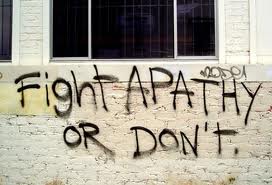 I like words. I believe in their power. If you read my blog that should be pretty clear. But, yesterday I was reminded that years before I was ever writing on a regular basis, I was trying to instill the power of words, not just for communication, but also for understanding the world, where and how we fit in it. I had lunch yesterday with one of the first youth I ever worked with, James, Class of 2004. He has moved back to town and we were catching up and thinking through networking and that kind of thing. In moving, he had left a job where he was working with students in an alternative school, young people from the same kind of community we had worked in, but more acute, more intense. I was glad to know he had translated some of his teen experiences into doing this kind of work, but I was stunned when he told me he actually used one of my workshops/discussions in his own work, more than a dozen years later. I couldn’t believe he still remembered it. It was one of those conversations I had facilitated almost certainly when I had hit peak frustration, and you never really know how those will work out! When I worked with youth, we talked about language pretty frequently. We discussed language in terms of communication, power, privilege, and how we need to keep asking “why” to blow up racial, economic, and cultural assumptions. But, this time, as James reminded me, I picked four specific words. I picked these four words because I felt my team needed them in their vocabularies. I picked these four words because they articulated the things we felt, experienced, and saw every day in our community. I picked these four words because we couldn’t get anywhere with our work, with exploding issues of oppression, with becoming youth advocates and organizers, with trying to change systems without understanding and attacking them. So, what were the words? Apathy Complacency Lethargy Atrophy These aren’t THE four words, or the BEST four words. They were probably just the four words burning in my brain as I walked to work that day, stewing on how to incite and awaken our team and our community. We discussed what they meant, according to the dictionary and our localized take. I asked if they had any examples. I asked them why they thought we were discussing these words. Ultimately, I asked them to take the next few days and to keep these words at the top of their minds, to go back home, to school, and to their neighborhood and watch for these words to surface in their experiences. I asked them to bring those observations back to the group. How do these observations relate to better strategies for reducing the use of payday loans and other predatory lenders in our community? How do they enlighten pathways for increasing college access for students in our schools? Too often, we look at words merely as a medium for expressing our thoughts, communicating to others, written or verbal. We don’t spend enough time thinking of the power of words to help us formulate our thoughts, to liberate us, to help us name and identify and begin to understand our oppressions or opportunities. We don’t think about the intellectual and creative force of words that are never written or spoken, the words churning in our minds as we seek to navigate and understand our world. These four words for me, on that day, at that time, with those young people were the most dangerous words I could think of. They were the words that could determine a future, define a community. They were the words I needed our team to own and understand, to shock our team into a more creative place, to liberate us from the words themselves. I am indebted to James for reminding me of this lesson. I am in awe and inspired by his actually taking them and making them part of who he is and how he helps others navigate their worlds. Now you take them, keep them top of mind, and try to recognize where you see them in your world. Hopefully, recognizing these four words can incite us all to make ourselves and our world better.
0 Comments
Leave a Reply. |
Categories
All
Archives
April 2024
|
 RSS Feed
RSS Feed